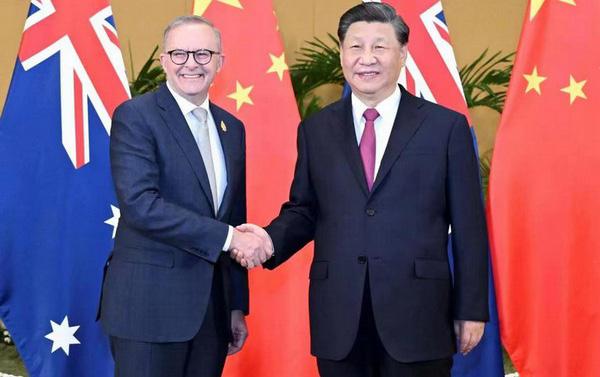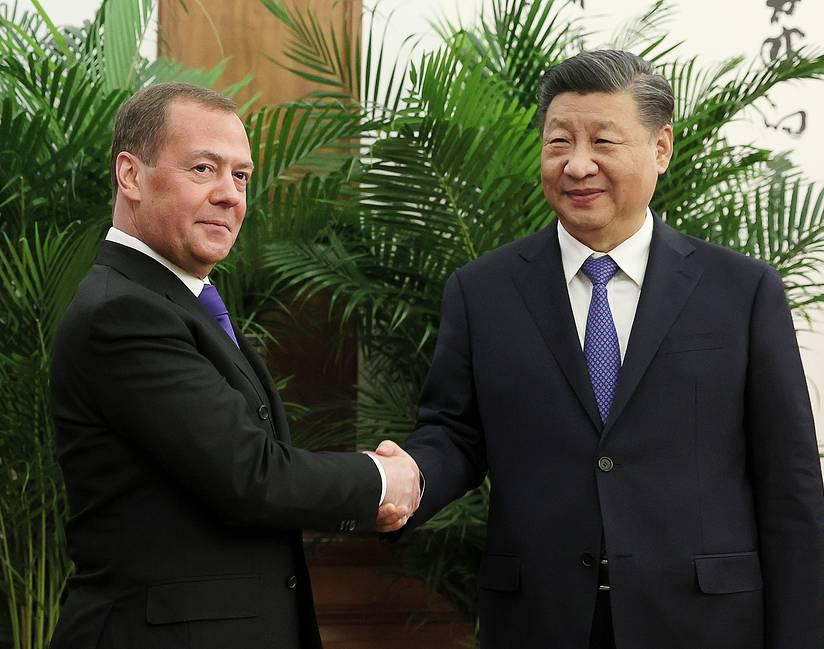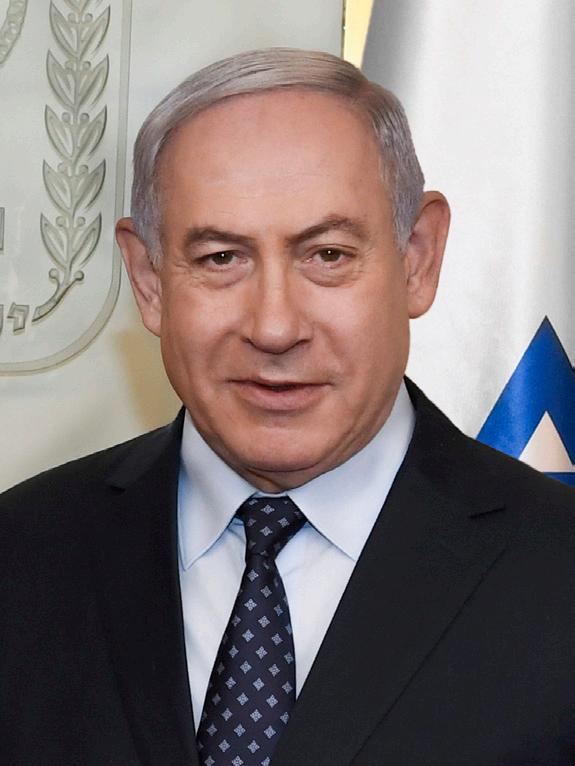
8 minute read
WORLD THIS WEEK
China: Australian leaders’ visit reflects a thaw in bilateral relations

Advertisement
What happened?
On 21 December, China’s President Xi Jinping met with Australian Governor-General David Hurley and Prime Minister Anthony Albanese as the two countries celebrated 50 years of establishing diplomatic relations with each other. Xi claimed that China was prepared to advance its relations with Australia based on win-win principles and mutual respect.
The joint statement affirmed to increased cooperation in bilateral relations, trade and economic issues, consular affairs, climate change, defence and regional and international issues.
On the same day, the Foreign Ministers of China and Australia, Wang Yi and Penny Wong, held the sixth China-Australia Foreign and Strategic Dialogue. Wang Yi expressed dissatisfaction with the state of the bilateral relations with Australia and said: “China and Australia have no historical grudges and conflicts about fundamental interests, and the two sides should and absolutely can become partners with mutual needs.”
What does it mean?
Even though the bilateral relations seem to be improving in the second half of 2022, the ties between the two are ridden with many obstacles. Australia may seem prepared to restart relations with China, however Canberra will not be forgetting its national security concerns and its suspicions.
The competition in the IndoPacific, close relations with the US, the fight for influence in the Pacific Island countries, and the impediments to China-Australia trade are yet to be resolved. These issues are a few of the many and will be time-taking when it comes to resolution.
South Africa: Ramaphosa re-elected as party president, amid ANC divisions
What happened?
On 19 December, President Cyril Ramaphosa was re-elected as the party president of the ruling African National Congress (ANC).
Over 4,000 ANC delegates voted; Ramaphosa secured 2,476 votes against the 1,897 votes won by his only rival and former Health Minister Zweli Mkhize. Al Jazeera quoted one of the contenders for the party’s deputy president: “This win is not only for the ANC perspective or a faction. It is for the country.”
What does it mean?
First, the ANC’s rising unpopularity and divisions pose a threat to the party’s relevance and legacy. Resolving the divide seems a distant solution, as over the years, the competition between the factions has only grown with little space for negotiations.
Second, Ramaphosa’s re-election as party president paves the way for him to contest the general elections in 2024. However, with the current state of affairs, Ramaphosa would have to address the party divide and the public grievances including unemployment, cost of living crisis, and power crisis.
Third, observing South Africa in 2023 would be interesting as the year would culminate in the general elections. The recent developments hint towards an intense political battle, leaving Ramaphosa with many battles to win, be it at the party front or to win the trust of South Africans.
China: Foreign Minister warns the US against bullying and containing Beijing
On 23 December, China’s Foreign Minister Wang Yi held a phone conversation with US Secretary of State Antony Blinken and urged the US to avoid a confrontational approach in containing China’s development. He called on the US to focus on converting the consensus reached by Xi Jinping and Joe Biden into tangible policies and actions. Wang said: “The US should not call for dialogue while at the same time containing China, or talk about cooperation but putting a knife in China… this is not managing disputes but intensifying conflicts.”
On 22 December, China appreciated the ruling by the World Trade Organization ‘s (WTO) Dispute Settlement Body which deemed the US origin marking requirement as unjustified. Furthermore, the Chinese authorities called on the US to respect and abide by the WTO’s ruling and uphold a rulebased multilateral trade system.
China: Scientists discover the evolution code of the coronavirus
On 19 December, a study published in the Nature journal discovered the mechanism for the convergent evolution of the coronavirus’ Omicron strains. The study is expected to broaden the scope and effectiveness of the COVID-19 vaccines and drugs. Scientists had previously discovered that the phenomenon of convergent evolution is the cause behind the Omicron variant’s high level of immunity and capacity to cause breakthrough infections. The researchers said: “We demonstrate that these convergent mutations can cause striking evasion of eutralizing antibody drugs and convalescent plasma, including those from BA.5 breakthrough infection, while maintaining sufficient ACE2 binding capability.” The study found that the antibody-evasive strains were driving up the cases worldwide.
China: President Xi Jinping meets with the Chairman of the United Russia Party and pushes for negotiations on Ukraine
On 21 December, President Xi Jinping met with the Chairman of the United Russia Party,

Dmitry Medvedev and expressed China’s will to deepen relations with Russia. Xi Jinping also urged Medvedev to push for a diplomatic resolution on the Ukraine issue. Xi said: “China hopes relevant parties can stay rational and restrained, conduct comprehensive talks, and resolve mutual concerns on security via political methods.” Medvedev said that the issue was complicated and expressed that Russia would be willing to carry forth with negotiations.
Fiji: Sitiveni Rabuka elected as the new Prime Minister On 24 December, Fiji will instate a new Prime Minister after 16 years of former Prime Minister Frank Bainimarama’s administration.
Sitiveni Rabuka narrowly became Fiji’s Prime Minister following a one-vote lead in a secret ballot conducted in the parliament.
Rabuka will rule a western-style democracy. He campaigned to establish dialogues with major world powers and reform Fiji’s economic practices to ensure it does not result in a debt trap.
Rabuka will form a coalition government with the National Federation Party and the Social Democratic Liberal Party (SODELPA).
Indonesia: EU members condemn new law on sex outside marriage
Indonesia: On 19 December, European Union officials responded to Indonesia’s new law banning sex outside marriage as a violation of human rights.
Joko Widodo was in Brussels for the EU–ASEAN summit, and the members questioned the country’s new penal code to the president. They condemned the law as problematic according to fundamental human rights. The EU members questioned the country’s legislation that makes it a criminal offence to insult the president to express views that are against the national ideology.
Indonesia: High delegation meeting with India makes way for maritime initiatives
On 21 December, India and Indonesia agreed to push a maritime initiative between the Andaman Nicobar Islands and Aceh Islands of Indonesia, which has the Sabang port. The port has a strategic as well as an economic presence in it. The high delegation meeting held in New Delhi also agreed to have interaction between business chambers and potential investors. The two sides also discussed the ways to promote trade tourism and people-to-people contact between the two regions. The location of Sabang port which is 710 km southeast of Andaman Islands and less than 500 km from Malacca strait entrance makes the trade from the Indian side easy and charges less in transportation costs compared to the Chennai and Kolkata ports.
India-China: Seventeenth round of talks held at LAC
On 20 December, India and China held the 17th round of corps commander-level talks at the Chushul-Moldo border on the Chinese side. According to the Indian Ministry of External Affairs, both sides agreed to keep the dialogue open through military and diplomatic channels and work out on mutually acceptable resolution at the earliest. The Ministry said in a statement: “They had a frank and in-depth discussion, keeping in line with the guidance provided by the State Leaders to work for the resolution of the remaining issues at the earliest which would help in restoration of peace and tranquillity along the LAC in the Western Sector and enable progress in bilateral relations,”
Israel: Netanyahu finalizes a deal with the allies

On 22 December, Netanyahu announced that he had been successful in reaching an agreement with the allies to form a new government, following the win on 1 November. The Likud Party has entered into agreement with ultra-nationalist and orthodox Jewish parties, which ultimately may result in the most right-leaning government in Israel’s history. A statement from Netanyahu’s office confirmed that he had informed President Isaac Herzog by phone that he had “been able to establish a government.”
Russia: US moving unfinished Bioweapons research away from Ukraine
On 23 December, the head of Russia’s Nuclear Biological and Chemical Defense troops revealed that the Pentagon has been moving their bioweapons research labs to countries outside of Ukraine after Russian operations uncovered labs backed by the US in Ukraine. He said that the unfinished projects are being relocated to Eastern European and Central Asian countries.
According to him, the data on the operations of US-backed laboratories in Ukraine was presented to the Organisation for the Prohibition of Chemical Weapons conference in Geneva. The files included lists of several organisations in Kiev and three US contractors and seven high ranking officials of Department of Defence. Moscow claims that the Americans have been boosting cooperation with Cambodia, Thailand, Kenya, Singapore, and other nations in the Indo- Pacific and Africa, that already possess laboratories with existing highlevel bio containment. Russian military has been releasing materials regarding this issue since March 2022.
About the Authors
Harini Madhusudan, Rashmi Ramesh, Akriti Sharma, and Ankit Singh are PhD scholars in the School of Conflict and Security Studies at the National Institute of Advanced Studies. Avishka Ashok, Apoorva Sudhakar, Joel Jacob and Sethuraman Nadarajan are Research Associates at NIAS.







